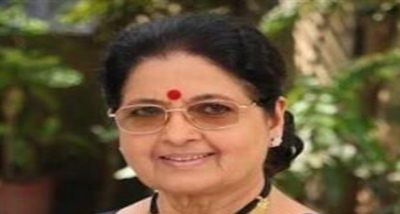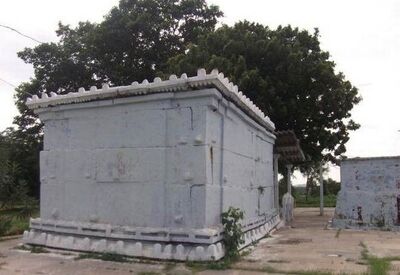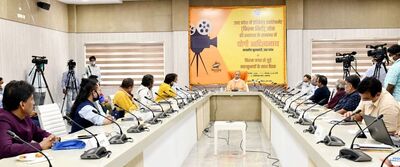Daily Current Affairs and GK | 23 September 2020

Main Headlines:
- 1. Marathi actress Ashalata Wabgaonkar passes away.
- 2. Parliament passes Banking Regulation (Amendment) Bill, 2020.
- 3. Kakati Devi Temple transitioned into abode of local Goddess ‘Balusulamma’.
- 4. International Day of Sign Languages: 23 September.
- 5. International Week of the Deaf: 21-27 September.
- 6. Logo and song for festival “Destination North East-2020” unveiled by Dr. Jitendra Singh.
- 7. Prototype Fast Breeder Reactor (PFBR) may start working by 2022.
- 8. DRDO carries out successful flight test of ABHYAS.
- 9. Indian Institutes of Information Technology Laws (Amendment) Bill 2020 passed.
- 10. Lok Sabha passes three labour codes.
- 11. Medical Devices Park to be established in Kerala.
- 12. Jammu and Kashmir Official Languages Bill 2020 passed in Lok Sabha.
- 13. J&K administration signs MoU with Army to operationalise Kishtwar airstrip.
- 14. UP Government to set up a dedicated Infotainment Zone.
- 15. Mukhymantri Kisan Kalyan Yojana to start in Madhya Pradesh.
- 16. Maharashtra government’s ‘E- Peek Pahani’ app to benefit farmers.
Happy February get 35% Off
Use Coupon code FEB26
1. Marathi actress Ashalata Wabgaonkar passes away.
- Renowned Marathi Actress Ashalata Wabgaonkar passed away due to COVID-19 on 22nd September.
- She acted in more than 100 Hindi and Marathi movies.
- Some of the prominent Marathi plays in which she worked were Guntata Hridhya He, Varyavarchi Varaat, Chinna and Mahananda.
- Her first Hindi film was Apne Paraye.

(Source: News on AIR)
2. Parliament passes Banking Regulation (Amendment) Bill, 2020.
- Parliament has passed the Banking Regulation (Amendment) Bill, 2020, which has amended the Banking Regulation Act, 1949.
- According to the existing Banking Regulation Act, 1949, RBI may, after placing a bank under the moratorium, prepare a scheme for reconstruction or amalgamation of the bank to secure its proper management, or in the interest of depositors, the general public or the banking system.
- The Banking Regulation (Amendment) Bill, 2020, has allowed the Reserve Bank of India to initiate a scheme for reconstruction or amalgamation without imposing a moratorium.
- Banking Regulation Act, 1949:
- It is an act passed in the year 1949 to regulate banks across the country.
- It provides rules regarding the framework within which banks are supposed to operate.
- This act empowers RBI to control and regulate the banking system.
- The objective of this act is to safeguard the rights of shareholders and public.
3. Kakati Devi Temple transitioned into abode of local Goddess ‘Balusulamma’.
- Kakati Devi temple built by Kakatiya ruler Ganapati Deva in Dharanikota in Andhra Pradesh, converted into an abode of local Goddess ‘Balusulamma’.
- The first king to introduce the worship of Kakati Devi in Andhra was Ganapati Deva.
- Kakati Devi temple features:
- It is a 13th century built temple.
- The sculpture in the temple has a goddess seated gracefully in the Padmasana position with eight hands.
- Her eight hands pose eight different special attributes.
- It is one of the rarest and unique images of Kakatiya sculptures.
- The architectural significance of the temple is that the ceiling is decorated with lotus medallions and there is no sikhara on its top.
- Kakatiya Dynasty:
- It is the south Indian Dynasty which ruled in Andhra Pradesh in India from 1083 CE to 1323 CE.
- Ganapati was the supreme king among all the rulers of the Kakatiya dynasty, as he played a significant role in the consolidation of the Telugu region under one rule.
- They were known for the construction of a network of tanks for irrigation and drinking water.
- Under the patronage of Kakatiya kings, many Hindu temples were built.

(Source: The Hindu)
4. International Day of Sign Languages: 23 September.
- International Day of Sign Languages is celebrated annually to raise awareness regarding the importance of sign language for deaf people.
- UN General Assembly adopted a resolution in 2017 to recognize 23 September as the International Day of Sign Languages to mark the establishment of the World Federation of the Deaf in 1951.
- First International Day of Sign Languages was celebrated in 2018.
- 2020 Theme: “Sign Languages are for Everyone!”
- There are approx. 72 million deaf people worldwide and more than 80% of them live in developing countries using more than 300 different sign languages.
- Convention on the Rights of Persons with Disabilities recognizes and promotes the use of sign languages.

(Source: WFD)
5. International Week of the Deaf: 21-27 September.
- The International Week of the Deaf (IWD) is an initiative of the World Federation of the Deaf (WFD).
- It is celebrated annually in the last week of September by the global Deaf Community since 1958.
- Theme of 2020 International Week of the Deaf: “Reaffirming Deaf People’s Human Rights”.

(Source: WFD)
6. Logo and song for festival “Destination North East-2020” unveiled by Dr. Jitendra Singh.
- Logo and song for the festival “Destination North East-2020” (The Emerging Delightful Destinations) has been unveiled by Dr. Jitendra Singh.
- Union Minister for Home Affairs Shri Amit Shah will inaugurate 4-day long festival on 27 September 2020. Dr. Jitendra Singh will be the Guest of Honour.
- The festival will end on 30 September 2020. Shri KirenRijiju, Union Minister of Youth Affairs and Sports, will be the chief guest for the closing ceremony.
- Shri RameshwarTeli, Union Minister of State for Food Processing Industries, will be Guest of Honour for the closing ceremony.
- Through Destination North East 2020, the government wants people to explore local destinations. This will promote local Tourism and Hospitality industry.
- Festival Destination North East was held in Varanasi in September, 2019. Earlier it was held in New Delhi and in Chandigarh.
- Dr. Jitendra Singh is Union Minister of State (Independent Charge) for Ministry of Development of North Eastern Region (DoNER) and Minister of State(MoS) Prime Minister’s Office (PMO), Personnel, Public Grievances, Pensions, Atomic Energy and Space.

(Source: PIB)
7. Prototype Fast Breeder Reactor (PFBR) may start working by 2022.
- Prototype Fast Breeder Reactor (PFBR) may start working by October 2022.
- Bharatiya Nabhikiya Vidyut Nigam Limited (BHAVINI) is constructing the PFBR.
- It will add 500 MW of electricity to the national grid after completion.
- The commissioning of PFBR is getting delayed due to technical problems.
- Prototype Fast Breeder Reactor (PFBR) is being constructed at Kalpakkam, Tamil Nadu. Its construction was started in 2004.
- A breeder reactor generates more fissile material than it consumes. In such reactors, Uranium 238 or Thorium 232 is used along with fissile fuel.
- PFBR is fueled by Mixed Oxide Fuel, which is made from plutonium recovered from used reactor fuel, mixed with depleted uranium.
- Bharatiya Nabhikiya Vidyut Nigam Limited (BHAVINI):
- It is completely owned by Government of India.
- It comes under the Department of Atomic Energy.
- It was founded in 2003. It is headquartered in Chennai.
8. DRDO carries out successful flight test of ABHYAS.
- DRDO has carried out a successful flight test of ABHYAS, a High-speed Expendable Aerial Target (HEAT).
- The flight test has been carried out from Interim Test Range, Balasore in Odisha.
- ABHYAS can be used as a target for evaluation of various missile systems.
- Aeronautical Development Establishment (ADE), DRDO has designed and developed ABHYAS.
- ABHYAS is powered by a small gas turbine engine.
- ABHYAS has Micro-Electro-Mechanical Systems (MEMS) based Inertial Navigation System (INS) for navigation.
- ABHYAS also has a Flight Control Computer (FCC) for guidance and control.
- Defence Research and Development Organisation (DRDO):
- It works under the Ministry of Defence.
- It was established in 1958 when the Defence Science Organisation (DSO) was combined with the Technical Developments Establishment of Indian Army and the Directorate of Technical Development & Production.
- Chairman: G. Sateesh Reddy
- Headquarters: New Delhi

(Source: News on AIR)
9. Indian Institutes of Information Technology Laws (Amendment) Bill 2020 passed.
- Indian Institutes of Information Technology Laws (Amendment) Bill, 2020, has been passed in Rajya Sabha.
- Lok Sabha has already passed the bill in March 2020. It will amend the Indian Institutes of Information Technology Act of 2014 and Indian Institutes of Information Technology (Public-Private Partnership) Act, 2017.
- The bill will announce 5 IIITs in Public-Private Partnership mode at Surat (Gujarat), Bhopal (MP), Bhagalpur (Bihar), Agartala (Tripura) & Raichur (Karnataka) as Institutions of National Importance.
- It will grant them statutory status along with 15 existing IIITs under the Indian Institutes of Information Technology (Public-Private Partnership) Act, 2017.
- The Institutions of National Importance status to 5 IIITs will enable them to use the nomenclature of Bachelor of Technology (B.Tech) or Master of Technology (M.Tech) or Ph.D. degree as issued by a University or Institution of National Importance.
- Union Cabinet has approved setting up of 20 new IIITs in Public-Private Partnership mode in November 2020.
- Currently, there are 25 IIITs all over the country. The central government runs five of total 25 IIITs. 15 are currently run by IIITs.
10. Lok Sabha passes three labour codes.
- Lok Sabha passes the Industrial Relations Code 2020, Code on Occupational Safety, Health & Working Conditions Code 2020 and Social Security Code 2020.
- Social Security Code 2020 extends the reach of ESIC and EPFO. The facility of ESIC will be provided in all 740 districts.
- It provides for the linking of establishments in hazardous sectors, even if the establishment has only one worker.
- The government will make a scheme for linking the unorganized sector and Gig workers with ESIC.
- The code gives plantation owners the option of linking plantation workers with ESIC and to establishments with less than 10 workers.
- All establishments having 20 workers would be covered under EPFO. But, establishments having less than 20 workers will have the option to join EPFO.
- Social Security Code 2020 also provides for the creation of the Social Security Fund.
- Occupational Safety, Health & Working Conditions Code, 2020, provides for free health checkups of workers of a certain age once a year by the employer and, for the first time, gives legal right for an appointment letter to workers.
- Industrial Relations Code, 2020, provides for two members instead of one member in the Industrial tribunal. It says that the award of a tribunal is to be implemented in 30 days.
- Industrial Relations Code, 2020, provides for negotiating union and negotiating council for negotiations on any dispute. It has a provision for the Re-Skilling fund for the first time.
- The codes also provide for the establishment of the National Occupational Safety and Health Board. They also provide for Database on Migrant Workers, journey allowance to them from Employer to visit home town once a year and a helpline to redress their grievances.
11. Medical Devices Park to be established in Kerala.
- MedSpark, a Medical Devices Park, will be established in the Life Science Park, Thonnakkal, Thiruvananthapuram (Kerala).
- It is a joint initiative of the Sree Chitra Tirunal Institute for Medical Sciences & Technology (SCTIMST) and Kerala State Industrial Development Corporation Ltd (KSIDC).
- The Foundation stone for Medical Devices Park will be laid on 24 September 2020.
- MedSpark is being developed under the Technical Research Centre for Biomedical devices program of the DST.
- Sree Chitra Tirunal Institute for Medical Sciences & Technology (SCTIMST) is an autonomous institute under the Department of Science and Technology (DST).
- Kerala:
- The state was formed on 1 November 1956. It is also known as the Spice Garden of India.
- The state shares its border with Karnataka and Tamil Nadu. Its capital is Thiruvananthapuram.
- Chief Minister: Pinarayi Vijayan
- Governor: Arif Mohammad Khan
- Official language: Malayalam
- Kerala has 20 Lok Sabha seats and 9 Rajya Sabha seats.
12. Jammu and Kashmir Official Languages Bill 2020 passed in Lok Sabha.
- Jammu and Kashmir Official Languages Bill, 2020, has been passed in Lok Sabha.
- The Union Cabinet has approved the introduction of the bill on 3 September 2020.
- The bill makes Urdu, Kashmiri, Dogri, Hindi and English as official languages in the Union Territory of Jammu and Kashmir.
- Earlier, Urdu was the official language of Jammu and Kashmir.
- As per 2011 census, Kashmiri is the mother tongue of 53% of the population. It is the most widely spoken language.
- Jammu and Kashmir:
- After suspending Article 370, the government has reorganized Jammu and Kashmir into the Union Territory of Jammu and Kashmir and Union Territory of Ladakh on 31 October 2019.
- Union Territory of Jammu and Kashmir is located to the north of Himachal Pradesh and Punjab.
- Its winter capital is Jammu and summer capital is Srinagar.
- LG of J &K: Manoj Sinha
13. J&K administration signs MoU with Army to operationalise Kishtwar airstrip.
- A Memorandum of Understanding (MoU) was signed between Army and Union Territory Jammu and Kashmir for the development and operationalization of Kishtwar airstrip.
- Brigadier Vikram Bhan, Commander of Rashtriya Rifles and S. Katoch, Commissioner Civil Aviation, signed the MoU in the presence of LG Manoj Sinha.
- The Airstrip would provide vital connectivity to Kishtwar District for both Defence and Civilians personnel.
14. UP Government to set up a dedicated Infotainment Zone.
- Uttar Pradesh Chief Minister Yogi Adityanath announced that 1000 acres of land had been identified in Gautam Budh Nagar for establishing an Infotainment Zone, film city.
- It will be established with all world-class Civil, Public and Technological facilities.
- The proposed film city will be nearest to New Delhi and International Airport at Jewar.
- Film City:
- Film City is an integrated film studio complex having recording rooms, gardens, lakes, theaters and grounds required for the shooting of films.
- It attracts tourism and creates employment opportunities in the area.
- Prominent film city in India are Ramoji Film City in Hyderabad, Dadasaheb Phalke Nagar in Mumbai, Noida Film City in Noida and Innovative Film City in Bengaluru.
- Uttar Pradesh:
- It is the most populous state in India.
- The Chief Minister of the state is Yogi Adityanath and Governor is Anandiben Patel.
- The capital of the state is Lucknow.
- The state animal of Uttar Pradesh is Swamp Deer, State Bird is Saras Crane, State Tree is Ashoka and State Flower is Brahma Kamal.

(Source: Economictimes.com)
15. Mukhymantri Kisan Kalyan Yojana to start in Madhya Pradesh.
- Madhya Pradesh Government announced that it would start Mukhymantri Kisan Kalyan Yojana for farmers on the line of Pradhan Mantri Kisan Samman Nidhi (PM-KISAN).
- Mukhymantri Kisan Kalyan Yojana:
- Under it farmers will get Rs. 4,000 in two installments every year.
- It will benefit about 80 lakh farmers of Madhya Pradesh.
- The scheme will run alongside the Pradhan Mantri Kisan Samman Nidhi.
- Now, farmers will end up getting Rs 4,000 from the state government and Rs 6,000 from the Centre in Madhya Pradesh.
- Madhya Pradesh:
- Madhya Pradesh ranks second in terms of area in the country after Rajasthan.
- The state capital is Bhopal.
- The Chief Minister is Shivraj Singh Chauhan and Governor is Anadiben Patel.
- Lok Sabha seats: 29, Rajya Sabha seats: 11
16. Maharashtra government’s ‘E- Peek Pahani’ app to benefit farmers.
- Maharashtra government said that ‘E- Peek Pahani’ app will benefit farmers as they will be able to get a fair price and good market for their produce.
- In this app, farmers can upload images of their crop and after verification of the same, Talathis can register the details on 7/12 extract.
- Nine talukas farmer details will be collected currently using this application.
- Maharashtra:
- It is the second most populous state and third largest state by area.
- The state capital is Mumbai.
- The Chief Minister is Uddhav Thackeray and Governor is Bhagat Singh Koshyari.
- There are 48 Lok Sabha seats and 19 Rajya Sabha seats.





 22 September 2020 Current Affairs
22 September 2020 Current Affairs 








Comments